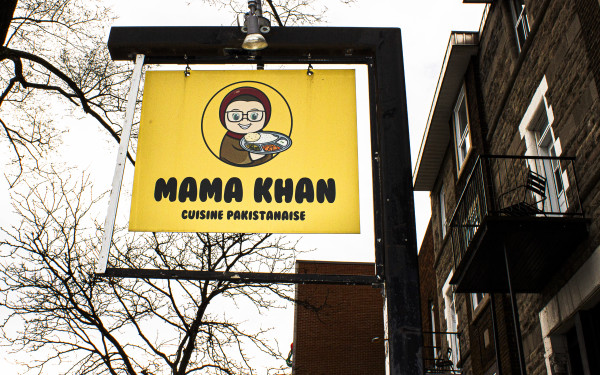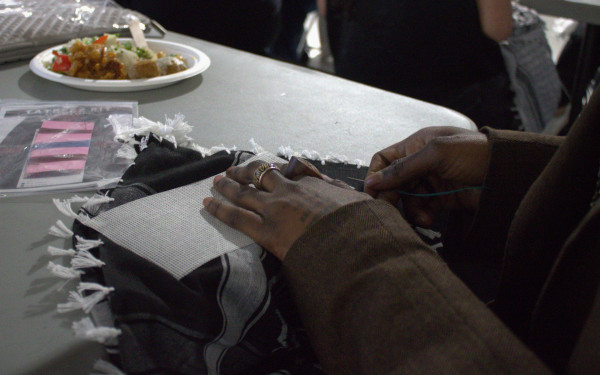Donated Metals for a Golden Heart
The Fondation Clermont Bonnenfant Turns Discarded Metals Into Life Changing Resources
57-year-old Clermont Bonnenfant just got home from his daily routine of collecting can tabs and batteries strewn across the south shore of Montreal.
By bus during the winter and on his affectionately-dubbed Harley-Pedalson motorized wheelchair during the summer, Bonnenfant is committed to collecting discarded metals no matter the time of year. He undertakes this task for a very good reason: he uses them to donate or finance the acquisition of wheelchairs.
Since 1992, Bonnenfant helped 6,438 people in need and donated 260 wheelchairs.
His reward? Bonnenfant was one of the recipients of the Governor General’s Caring Canadian Awards in 2003. More recently he was honoured with the 2014 Queen Elizabeth II Silver Jubilee Medal.
Bonnenfant’s passion for his line of work runs deep—back to 1986 when he hopped on the passenger seat of his brother Ghislain’s motorcycle and a car then cut them off.
“Bang!” recalled Bonnenfant.
His brother suffered from a wrist and pelvic injury. Bonnenfant was not as lucky.
“You cannot get anything for nothing. Nothing happens to you for no reason,” he said.
Hospitalized for 10 months at the Charles LeMoyne Hospital in Greenfield Park—a month and a half of which he was comatose—he underwent 21 surgeries. He was 26 years old and paralyzed on the left side of his body, left with speech and visual impairments.
For Bonnenfant, however, his ailments were a minimal sufferance in comparison to where his life was headed. “I say ‘thank you’ for getting in the accident,” he confessed. “If I hadn’t gotten in the accident, I would have gone to prison.”
At the time, Bonnenfant was far from the philanthropic and optimistic man he is today. “Alcoholic, drug addict, liar and thief” are the words he used to describe himself. Prior to his accident, he spent six months in jail under theft charges.
He used to view the world with what he calls “thug vision.” His handicap, Bonnenfant revealed, that changed this outlook.
“Instead of being negative, I am always positive. Always. Always,” stressed Bonnenfant. “You need to be positive. In everything.”
This positivity radiates through his overall demeanor, particularly through the number of time he utters the word “help.”
“I help people. People help me a lot,” he reiterated through bits of laughter. “That is mutual aid. You help me, I will help.”
This mutual aid, after all, is just Bonnenfant holding up his end of a deal he made while recovering in the hospital. He pleaded,“God, help me to come out of this. I swear that I will help you in return.”
The recovery process, however, did not come without strife—Bonnenfant fought a battle with depression. Through rehabilitation, he learned how to speak and walk again.
Five years following the accident, inspiration struck, and he was finally able to follow through on his promise.
One day in 1992, he went into a key-manufacturing store. He met the owner who was collecting can tabs to help buy his own wheelchair, as he was disabled. Bonnenfant helped the man achieve his goal and followed in his footsteps, creating his own foundation called Fondation Clermont Bonnenfant.
Bonnenfant sees struggling disabled people every day, and it motivates him to lend a helping hand. His mother Yvette remembers that her son Ghislain—who suffered only minor injuries in the motorcycle accident—once told her he finds his brother extremely hard-working and that he would not have had the motivation to continue with the same drive as his brother.
“You cannot get anything for nothing. Nothing happens to you for no reason.” – Clermont Bonnenfant.
In addition to his own collection, Bonnenfant receives tabs and batteries from approximately 75 locations—from across Québec, Ontario and the eastern United States, including Massachusetts, Connecticut and Florida—that amass and donate them to his foundation.
Bonnenfant’s 82-year-old mother Yvette Bonnenfant plays a supporting role in her son’s foundation. She acts as the organization’s secretary. She claims that sometimes her son takes up to 13 buses a day when he travels to Longueuil, Brossard or St-Hubert to collect can tabs. His other relatives also help him a great deal, from providing transportation to social media and email management.
All of the help that Bonnenfant receives is incredibly valuable, considering the work needed to purchase and produce each wheel chair. He says that 858 pounds of tabs or batteries are needed to finance the purchase of a regular wheelchair. Lately, his foundation receives more donated wheelchairs, so they do not need to finance the acquisition of new ones as frequently as they did before.
Ghislain drives his brother to a recycling centre about once a month. He did not reveal the location of the recycling, fearing that it would jeopardize his special rate—he sells his stock at a rate of $0.70 per pound of the pure metal from the tabs instead of the usual $0.40, which remains for the cans’ mixed metal. The aluminum is melted and reused in the production of other goods.
Despite the fact that the foundation no longer needs to buy as many new wheelchairs because of the amount already donated, Bonnenfant does not let his work go to waste. Their remaining profits goes towards charities and organizations like L’entraide chez nous in Longueuil. L’entraide works for a better social integration of disadvantaged people in Longueuil-Est, and provides food assistance for households in need.
Mary Claire Mac Leod, L’entraide’s food security coordinator, has known Bonnenfant for 15 years for the work he’s done with them. He visits them around four times a year, as the organization is a pickup point for tabs, and give them between $100 and $150 each time. The money is mostly used to buy milk, a commodity scarcely donated to their food assistance service.
Despite having been involved in another car accident a few years ago, Mac Leod remarks that “Clermont is persevering.” She said, “It really is altruism in its purest form because the wheelchairs aren’t even for him.”
Bonnenfant also gets calls from people looking for walkers, canes, and crutches on a regular basis. These are donated to the foundation. He also gathers glasses which are brought to Africa every year by a priest from Brossard.
Bonnenfant has also given 70 conferences in both French and English at schools across the province “to wake [the students] up.” His mother elaborated that he does so to encourage the students to not follow the same dangerous path he was once on.
Despite having received the two prestigious awards for his contributions, Bonnenfant is not ready to call it quits. “I will continue until I die,” insisted Bonnenfant. “It is a lifestyle choice. I never give up on the idea. Never.”
The foundation accepts donations of tabs, batteries, bread tags and glasses in one of the various pickup points listed on their website .
If you cannot find a pickup point in your region, contact the foundation by email at clermont_b@hotmail.com or by calling them at 450-677-3792. Crutches, canes and walkers can be delivered at his home at 2765 St-George, Longueuil, Canada, J4K 4B6.



_600_375_90_s_c1.jpg)


